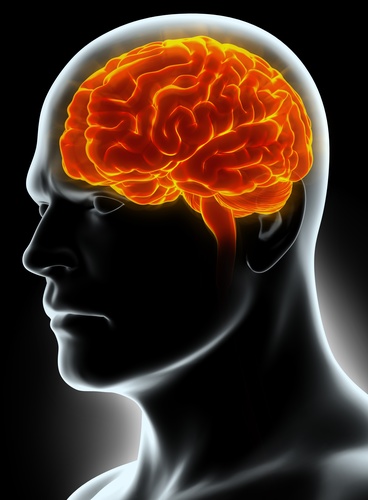
Choose a channel
Check out the different Progress in Mind content channels.

Progress in Mind

During a plenary session at EAN 2019 on the role of inflammation in “non-inflammatory” neurological diseases, one speaker discussed the current evidence for a role of neuroinflammation in the pathogenesis of Parkinson’s disease. Inflammation starts early in the disease process and may change the course of disease. To be successful, trials of anti-inflammatory agents must target early stages of the disease and require long treatment periods to demonstrate any neuroprotective effect.
The major pathological features of Parkinson’s disease (PD) – the most common neurodegenerative movement disorder – are the death of substantia nigra dopaminergic neurons and the presence of intraneuronal aggregates (Lewy bodies) composed of α-synuclein.
Approximately ∼30% loss of dopamine cell bodies in the substantia nigra and ∼50% loss of dopaminergic axon terminals in the putamen are usually detected at the time of diagnosis of PD suggesting that this level of dopamine reduction is required to produce clinical symptoms. Further degeneration of dopamine neurons is rapid, with almost total loss of dopamine axon terminals in the dorsal putamen detected after 4 years and extensive loss of dopamine cell bodies in the substantia nigra by 5 years.1
Consequently, if dopamine neurons are to be rescued, neuroprotective treatments must start as soon as possible.
If dopamine neurons are to be rescued, neuroprotective treatments must start early in the disease process
To validate a neuroprotective approach, we first need to examine the contribution of inflammation in the neurodegenerative processes in PD, and also to identify whether inflammatory processes start early enough such that anti-inflammatory treatments can be expected to have neuroprotective effects.
How does inflammation contribute to the degeneration of neurons in PD?
Brain inflammation is characterized by the presence of activated microglia, infiltrating T-lymphocytes, and elevated concentrations of both pro-inflammatory and anti-inflammatory cytokines.
Microglia – the “immune cells of the brain” – are known to be activated in the brains of patients with advanced PD. Recent studies show that microglia activation is an early event in PD probably contributing to the development of a-synuclein pathology.2
Microglia activation is an early event in PD probably contributing to the development of a-synuclein pathology
Microglia can produce and secrete pro-and anti-inflammatory cytokines, both of which are elevated in the brains of PD patients. However, the overall effect of microglia activation is damaging, with the effect of pro-inflammatory cytokines overshadowing the anti-inflammatory effect and so triggering neurodegeneration.
So, what is the trigger of microglia activation and cytokine production? a-synuclein activates microglia through surface receptors and induces a pro-inflammatory response with cytokine production. Following an initial neurotoxic insult, a self-perpetuating cycle of neurotoxicity through microglial activation leading to neuronal death is triggered.3
Inflammation matters: Inflammation starts early and may change the course of PD
Could PD be an auto-immune disease?
Recent evidence suggests a role for the acquired immune system in PD pathogenesis, with the identification of T-lymphocytes in the substantia nigra and a-synuclein reactive T-lymphocytes in the blood of PD patients.4 In addition, the number of major histocompatibility complex (MHC) class II-positive microglia in the subtantia nigra and putamen increase with disease progression in PD patients.5 MHC class II genes encode molecules such as α-synuclein that present the α-synuclein antigen to T-cell receptors generating autoreactive T-lymphocytes. T-cells recognize disease-altered self-proteins as foreign antigens, suggesting that PD could be an auto-immune disease.
When in the disease process the priming of T-cells happens is still unclear. Microglia could be activated and present α-synuclein to T-cells prior to neuronal death.
Is the gut the trigger of PD?
Could systemic inflammation be the primary event leading to brain inflammation and neurodegeneration? The evidence from epidemiological studies is as yet inconclusive. The gut may be the initiating site of inflammation triggering accumulation of α-synuclein in gut neurons, and when transmitted to the brain, will start PD pathology. α-synuclein is located in enteric nervous system before motor symptoms appear,6 and α-synuclein can be detected in the vagus nerve.7
Future immunomodulatory trials in PD?
Ultimately, the only way to test whether inflammation could be a therapeutic target to slow or halt PD would be to conduct interventional trials using immune-suppressant/immune-modulatory drugs.8
Our correspondent’s highlights from the symposium are meant as a fair representation of the scientific content presented. The views and opinions expressed on this page do not necessarily reflect those of Lundbeck.
1. Kordower JH et al. Disease duration and the integrity of the nigrostriatal system in Parkinson’s disease. Brain. 2013; 136(8):2419-31.
2. Olanow CW et al. Temporal evolution of microglia and α-synuclein accumulation following foetal grafting in Parkinson's disease. Brain. 2019;142(6):1690-1700.
3. Block ML et al. Microglia-mediated neurotoxicity: uncovering the molecular mechanisms. Nat Rev Neurosci. 2007;8(1):57-69.
4. Sulzer D et al. T cells of Parkinson’s disease patients recognize α-synuclein peptides. Nature. 2017; 546(7660):656-61.
5. Imamura K et al. Distribution of major histocompatibility complex class II-positive microglia and cytokine profile of Parkinson's disease brains. Acta Neuropathol. 2003;106(6):518-26.
6. Hilton D et al. Accumulation of α-synuclein in the bowel of patients in the pre-clinical phase of Parkinson's disease. Acta Neuropathol. 2014;127(2):235-41.
7. Beach TG et al. Multi-organ distribution of phosphorylated alpha-synuclein histopathology in subjects with Lewy body disorders. Acta Neuropathol. 2010;119(6):689-702.
8. Athauda D et al. Exenatide once weekly versus placebo in Parkinson's disease: a randomized, double-blind, placebo-controlled trial. Lancet. 2017;390(10103):1664-75.